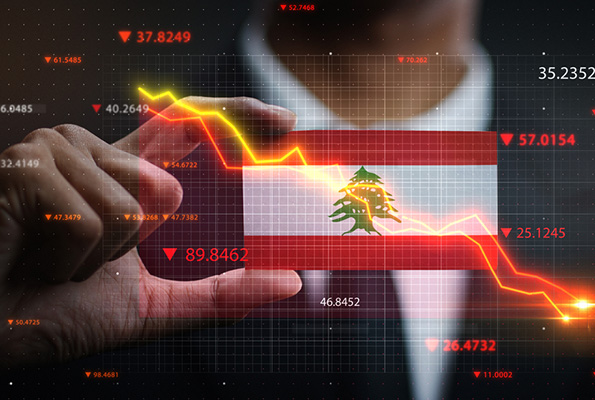Inflation in Lebanon more than doubled in January 2023 as consumers and companies continued to feel the effects of increased living expenses.
According to the recent information made available by Lebanon’s Central Administration Statistics, the monthly consumer price index (CPI) showed an annual increase of 123.5%, primarily due to the high prices of communication, education, and healthcare.
In Lebanon, communication costs rose by 331% for households and enterprises, while the rate increased by 191% and 176% in education and healthcare, respectively.
While the cost of apparel and footwear increased by 161%, bills for water, electricity, gas and other fuels increased by 163%.
Businesses and consumers had to pay more for transportation, which also increased by 135%.
However, there were notable increases in the categories of food and non-alcoholic drinks (up 138%) and hotels and restaurants (up 174%).
Lebanon’s monthly CPI has also increased by 8.43%, as per the latest data.
In its September 2022 report, the International Monetary Fund (IMF) stated that the Lebanese economy is still “severely depressed.” The nation has been experiencing decreased employment, GDP, foreign exchange reserves, and revenues with rising inflation.
During 2018, the country’s GDP decreased by more than 40%, and the parallel exchange rate rose to LBP 38,000 for every US dollar.
Public sector institutions are reportedly crumbling, and essential services to the populace have been significantly reduced amid collapsing revenues and drastically reduced spending. As a result, according to the International Monetary Fund, unemployment and poverty are at historically high levels.
“Lebanon’s persistent economic and financial crises have kept price growth in triple digits since mid-2020 and, with the Lebanese pound still losing value both on the parallel market and on the official exchange rate since a 90 per cent devaluation at the start of February, inflation is likely to remain elevated for some time,” Emirates NBD said in a research note.
After hitting the 155% mark in 2021, inflation in the Middle-Eastern country surged to 171.2% in 2022, the highest in about four decades.
Lebanon’s tax revenue halved by more than between 2019 and 2021 due to the deepest economic crisis since the end of the civil war, states the International Monetary Fund.
“Without taking active tax measures now, the decline in revenue is likely to continue… with severe ramifications, beyond foregone receipts, in undermining the progressivity of the system, and in aggravating inequality and distortions,” the Washington-based lender remarked recently.
The misevaluation of customs, excises and vat at the border is estimated to have caused a revenue loss worth 4.8% of Lebanon’s GDP in 2022, IMF remarked.
The World Bank has described the country’s crisis as one of the worst in modern history, ranking it among the world’s worst financial crises since the mid-19th century.
Unemployment has seen a surge, and more than half the population has slid below the national poverty line.
Lebanon’s political elite hasn’t introduced the required critical structural and financial reforms (government formation, the election of a president and most importantly, establishing political stability), required to unlock the USD 3 billion IMF assistance, securing which, the middle-eastern country would get another USD 11 billion that has been pledged by international donors at a Paris conference in 2018.
The country has gone into a nine-month deadlock since 2022 over the Cabinet formation after parliamentary elections got over.



